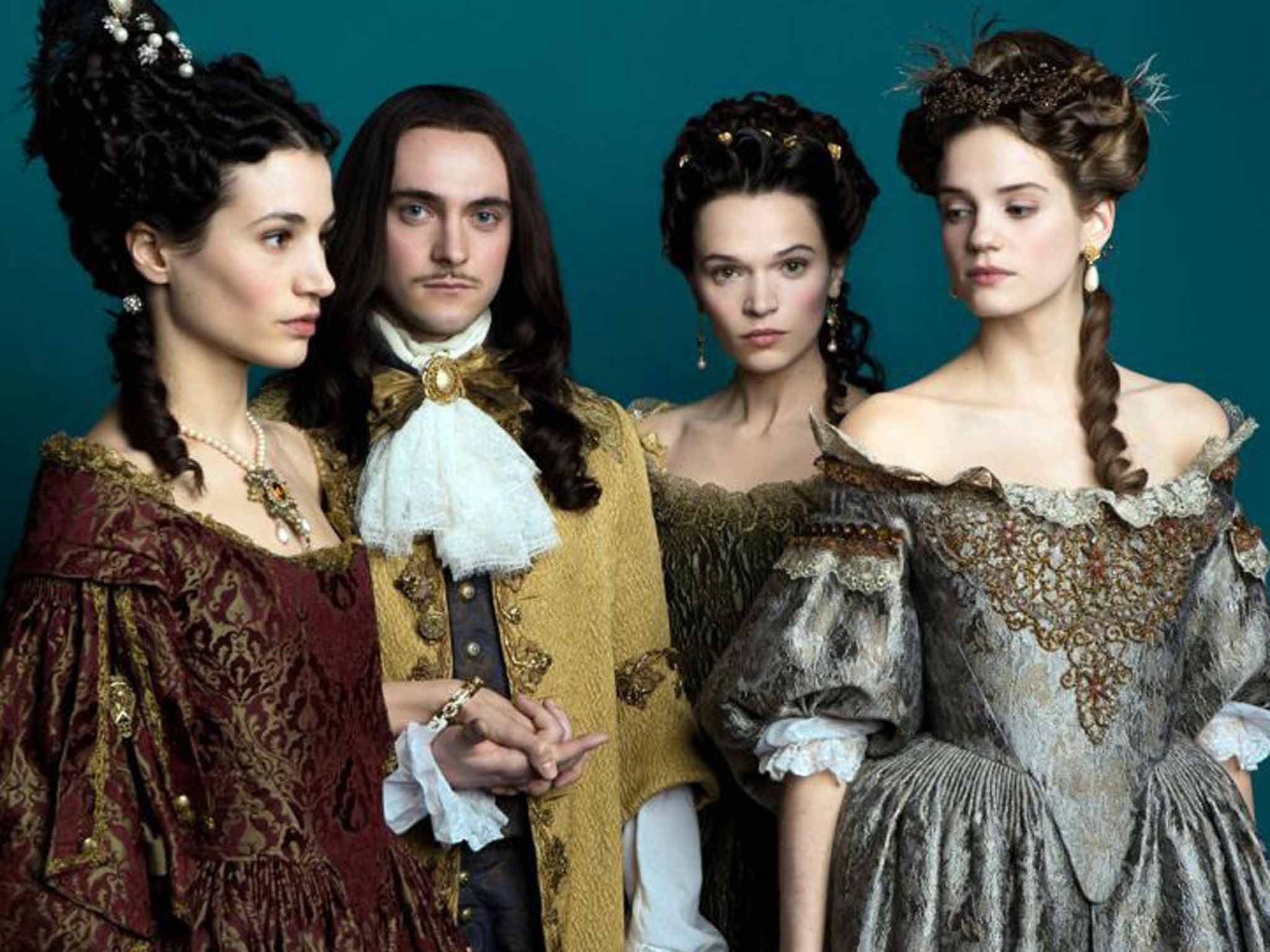Versailles will put Downton to shame: A lavish TV series with modern references
An Anglo-French production about Louis XIV's Versailles has proved a big – and relevant – hit in France. And soon we can marvel at it, too, writes Leonora Craig Cohen

Television and cinema have long had a soft spot for pre-Revolutionary France. From the charmingly anachronistic Marie Antoinette by Sofia Coppola to the late Alan Rickman's garden-design romp, A Little Chaos – about an imaginary female gardener tasked with making a rockery for Versailles – it's been rococo and rosettes every way you turn.
In Britain, one might put this down to schadenfreude, enjoying the excesses of our nearest neighbour's deposed royalty so as to reflect on the moderation of our own. But the new Anglo-French drama Versailles – created by the British duo Simon Mirren and David Wolstencroft and coming to BBC2 this spring – has proved hugely popular in France, where it was released first, on Canal Plus. And that despite the French critics, who were reportedly furious the series is in English.
According to the creators, however, the decision was made on the basis that the story has an appeal far beyond the Francosphere. “We were these two Rosbifs who were writing the story of an iconic French monarch,” they say. “We were braced for a backlash.”
The French appear to have forgiven them: Versailles was so popular there that a second season is already being filmed. It also can't hurt to have the larger budget of an English-language production when filming inside the most famous palace in the world. The most expensive French TV series ever, it reputedly cost about €2.7m per episode, or £2.1m, more than twice the average cost of an episode of Downton Abbey.
But why should this story catch our imagination now? It may be that tales from the Sun King's time, with their focus on luxury and rigid codes of conduct, speak to modern anxieties on multiple levels. We fear further insurrection abroad and at home, and are constantly judged on social media, without the strictures of court etiquette to guide us. Amanda Vickery, professor in early modern history at Queen Mary University of London, describes Versailles as a “theatre of glamour” and says that its lasting appeal is because “we have an enduring fascination with the fabrication of power”.
Louis XIV brought in a new age of opulence and his descendants continued the tradition. So much public money was spent on displays of wealth and power that the starving French peasantry were prepared to have a revolution. And since it was recently claimed by Oxfam that 62 people are as wealthy as half the world's population, perhaps our interest in a dynasty that overreached themselves is unsurprising.

What's more, although they share the same cast of character-types – from bold Philippe, Duke of Orleans, to the scheming Marquise de Montespan – Versailles is not the gentle world of A Little Chaos. Very little here can be resolved with the right selection of decorative seashells. Set not long after the Thirty Years War, it is a paranoid and traumatised Louis XIV who decides he must keep all his fractious nobles under one roof, distracted by arcane codes of conduct and petty rivalries. Mea while, insurrection is everywhere, as is intrigue and entanglement. George Blagden, perhaps best known for playing Grantaire in Les Misérables (itself concerned with a period of tumult in France) has said that one of the most difficult aspects of playing the Sun King was the number of sex scenes.
It is easy to criticise TV drama for trying to replicate the grit and sexiness of hit shows such as Game of Thrones, but in this case history is its witness. “We fell off our chairs when we read about Philippe,” says Wolstencroft. Played by Alexander Vlahos of Doctor Who and Merlin fame, Louis's younger brother was openly gay and given to dressing in women's clothes. He was also a fearsome commander on the battlefield and his effeminacy seems to have been politically useful. The pair point out that “he was instrumental in steering the course of his brother's adoption of culture as a tool for dominance and victory… a story about the king became a story about two brothers”. It is their battle against each other that drives the series, as much as those against rebellious noblemen and the Dutch crown.
Now that gender and sexuality are becoming increasingly fluid, Philippe seems a very contemporary figure. And although Versailles is set in an era before the bolshy Marie-Antoinette was born, the women here are no weaker than the men and just as important to the plot. The Sun King and his brother continually fight for the possession of Philippe's wife, Henriette of England, but she steers her own course with diplomacy and elegance. The Marquise is another force of nature, equal to anything court life can throw at her. Eat your heart out, Maggie Smith.
'Versailles' is coming to BBC2 later this year
Join our commenting forum
Join thought-provoking conversations, follow other Independent readers and see their replies
Comments
Bookmark popover
Removed from bookmarks